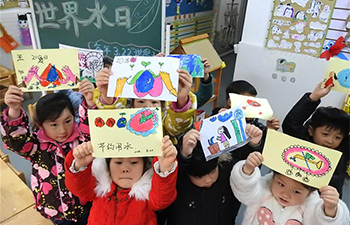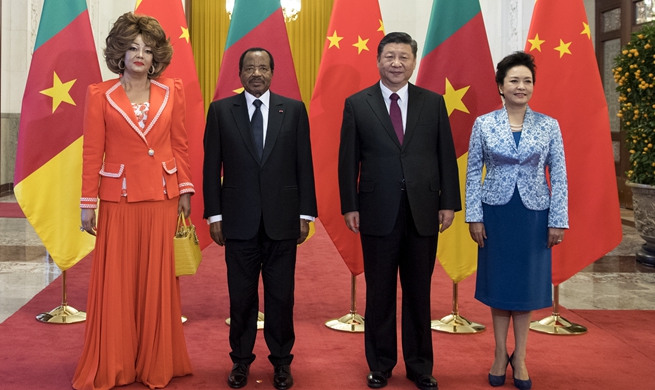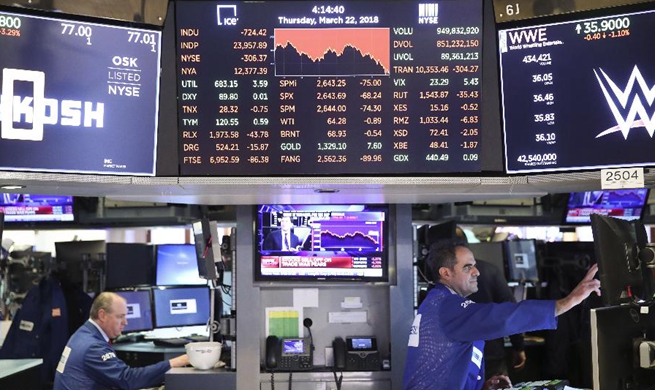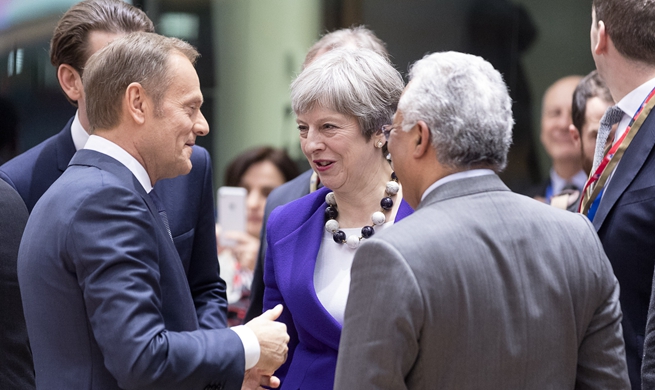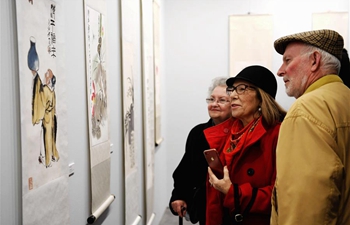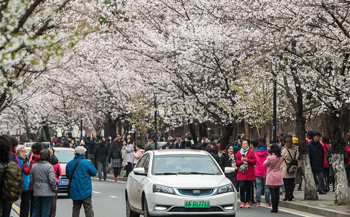DUBAI, March 22 (Xinhua) -- U.S. President Donald Trump's latest trade threats against China are yet another example of "shoot from the hip policy-making," said an expert from the United Arab Emirates (UAE) on Thursday.
"Many companies in the United States have lobbied him to back down on tariffs he is about to impose on China," said Gary Dugan, chief investment officer at the Dubai-based consulting firm Namara Wealth Advisors.
"Trump's arguments for imposing tariffs are tenuous even if he had a valid argument concerning protection of patent on technology," he added.
The expert said the large U.S. deficit with China is mostly "self-inflicted."
The deficit is partly caused by U.S. companies' exporting their products back to the United States after the products were manufactured in China, Dugan noted.
Besides, he said, the U.S. government restricts the sale of some high-valued products to China based on the argument that they do not want to share some leading-edge technology with China.
Dugan also saw Trump's move as a political manoeuvre targeting the upcoming mid-term elections in November.
"These tariffs are in my view not about real trade issues but purely about the U.S. president's pandering to an ill-informed electorate," he said.
Earlier in the month, Nasser Saidi, a Dubai-based economist and former Lebanese economy minister, said Trump's imposition of substantial tariffs on steel and aluminum has triggered "fear of a trade war and has sent shock waves worldwide."
Earlier in March, Trump announced that the United States would slap a 25-percent tariff on imported steel and a 10-percent one on imported aluminum, sparking widespread criticism and opposition among congressional Republicans, business groups and its trading partners.
Earlier on Thursday, Saidi said on Twitter that Trump's latest tariff policy imposed on China "has the possibility to derail global trade and economic growth."
The UAE financial community will observe the impact of the shockwaves on global trade as China has emerged as the Gulf state's biggest non-oil trade partner, said Saidi.
China remained as the UAE's top trade partner in 2016, UAE state news agency WAM reported earlier, citing statistics from the UAE's Ministry of Economy.
The UAE-China trade totalled 170.2 billion dirhams (46 billion U.S. dollars) in 2016, down slightly from 174.6 billion dirhams (47.1 billion dollars )in 2015 and 175.8 billion dirhams (47.5 billion dollars) in 2014.






